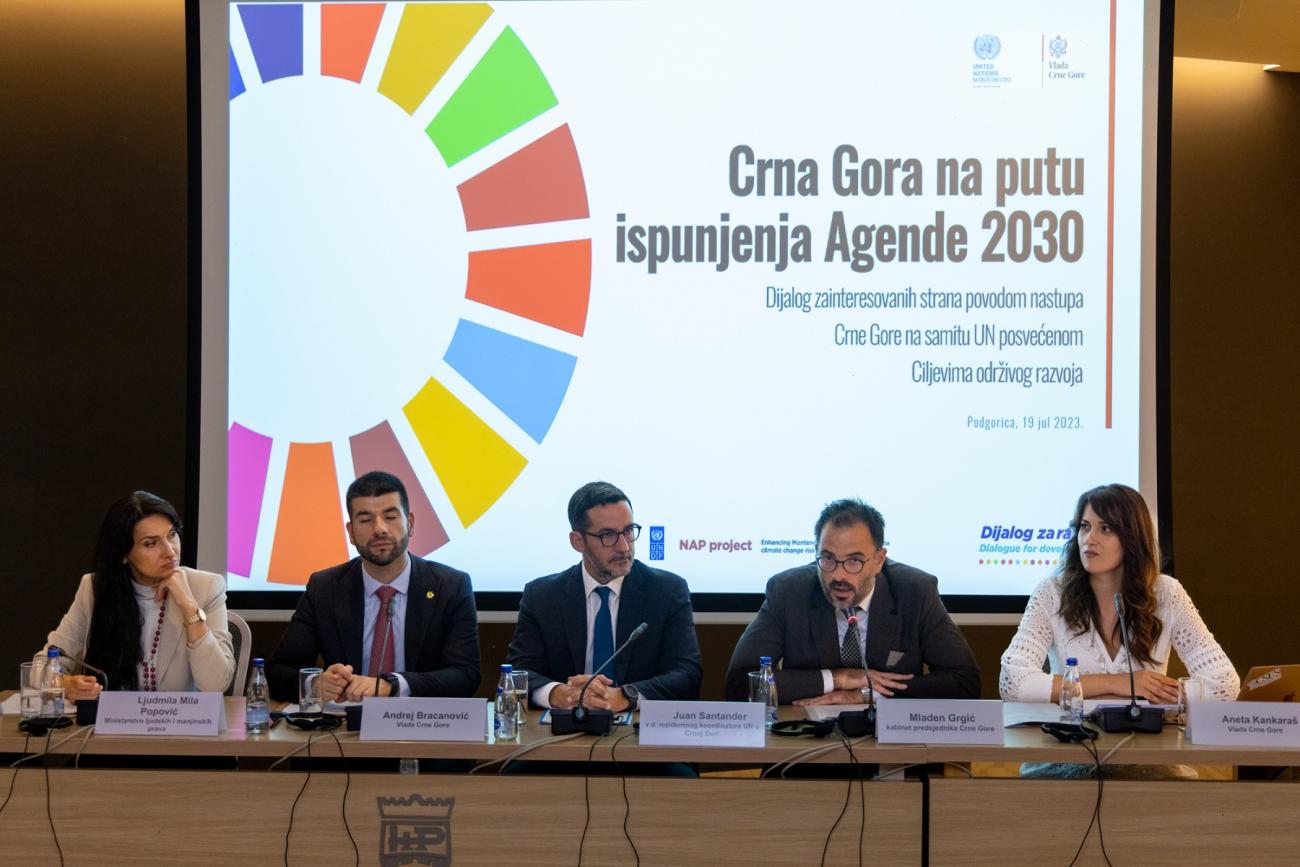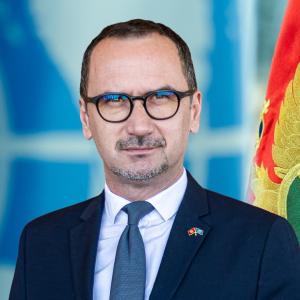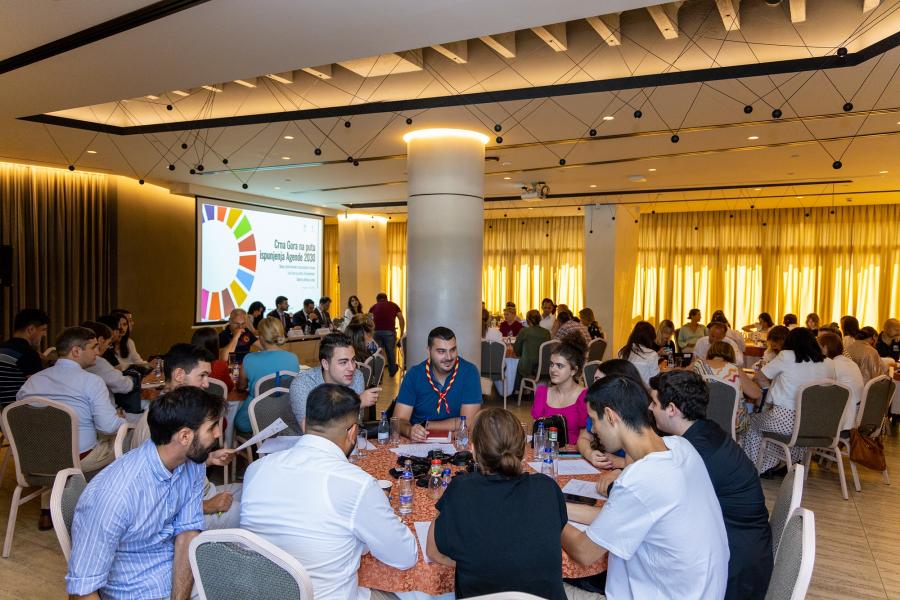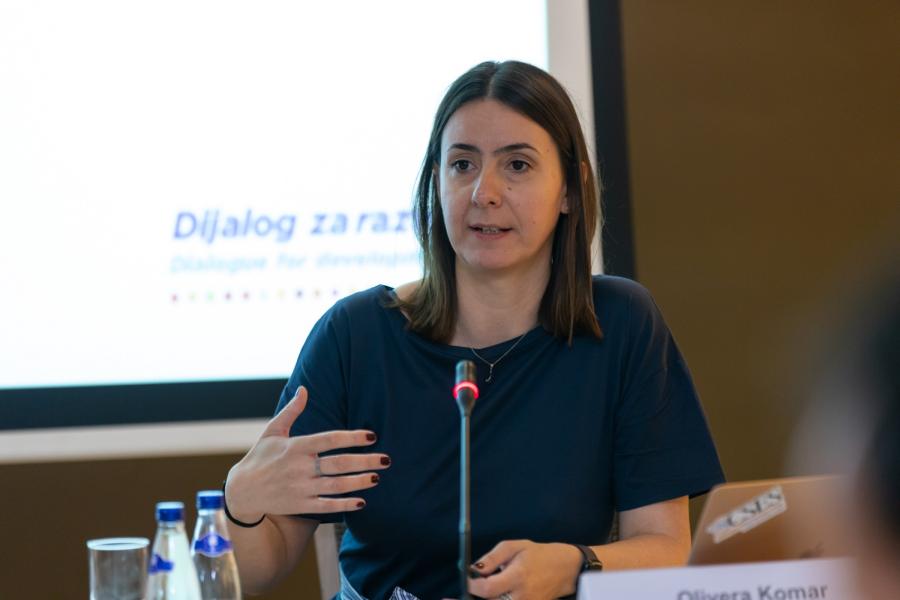Story
Montenegro’s promise for the future: Stepping up commitments for Agenda 2030
19 July 2023

Caption: Opening panelists at the event.
From the left: Ljudmila Mila Popović, Director General, Ministry for Human and Minority Rights; Adviser to the Prime Minister, Andrej Bracanović; Juan Santander, UN Resident Representative a.i; Mladen Grgić, Advisor to the President of Montenegro; Aneta Kankaraš, Head of the Office for Sustainable Development in the General Secretariat of the Government of Montenegro
Photo: © UN Montenegro / Željko Bracanović
Written by

UN entities involved in this initiative
FAO
Food and Agriculture Organization of the United Nations
IFAD
International Fund for Agricultural Development
ILO
International Labour Organization
IOM
International Organization for Migration
ITU
International Telecommunication Union
OHCHR
Office of the United Nations High Commissioner for Human Rights
UN Women
United Nations Entity for Gender Equality and the Empowerment of Women
UNDP
United Nations Development Programme
UNDRR
UN Office for Disaster Risk Reduction
UNECE
United Nations Economic Commission for Europe
UNEP
United Nations Environment Programme
UNESCO
United Nations Educational, Scientific and Cultural Organization
UNHCR
United Nations High Commissioner for Refugees
UNICEF
United Nations Children’s Fund
UNIDO
United Nations Industrial Development Organization
UNODC
United Nations Office on Drugs and Crime
UNOPS
United Nations Office for Project Services
WHO
World Health Organization



















